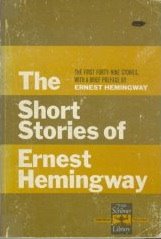
I love to geek out. If you're looking for a huge fan of
The Lord of the Rings books, I'm your man.
Harry Potter? Loved it. So I feel like it was only natural for me to gravitate towards
The Chronicles of Narnia books. I mean C. S. Lewis and J. R. R. Tolkien were buddies and met to discuss issues with their writing. And I was very satisfied. Not only were the books quick reads, but they were fantastic stories that ignited my imagination in a way a book hasn't done since
Harry Potter.I decided to blog all seven books together, mostly out of laziness, but also because I felt it would be easier to write about as a series than individual books. First off, the books can be read in several different orders. The two I know about are: 1) Chronologically by events that happen in Narnia, from conception to the end of that world, and 2) By publication date. I read them, as a recommendation (a friend who, given his interest, I wholly trust), in publication date order. Though we jump around in Narnia time, the story follows chronological time of all the visitors to Narnia (children in London), and we get to work our imaginative muscles a bit more, fitting all the pieces together, jumping back and forth between worlds.
Collectively, the Chronicles follow the journeys of three groups of kids into Narnia (minus
The Horse and His Boy, a stand-alone Narnia story with no travel between worlds), each time being sent or called into Narnia to save the land from peril. They meet talking animals and witches and river-gods and talking trees, fauns, minotaurs, and the like in this amazing world. There's not a lot I'd like to say about the books other than that I thoroughly enjoyed them, and look forward to one day sharing them with a younger audience.
C. S. Lewis' influence by Christianity in the stories is directly evident but not so overpowering that you feel like you're reading the Bible. Aslan, the talking lion, is the creator and deliverer of Narnia, and that has obvious implications, but I think far more important and interesting, for all faiths, is the moral code the stories follow (especially for children). Only the purest of heart succeed in Narnia, with kindness and respect for all things.
Here's the order I liked the books in, and the order I read them in:
6 -
The Magician's Nephew - Two children find a portal between the worlds, set free an evil queen, and witness the creation of Narnia by Aslan. Obvious
LOST connections here, and the story was riveting on its own. I thoroughly enjoyed.
5 -
The Horse and His Boy - A tale about a boy who doesn't know his heritage that winds up warning Narnia about the threat of invasion from the neighboring, dangerous Calormen. A talking horse sets him on his journey and accompanies him, and they meet a strange man in the land between Narnia and Calor.
3 -
The Voyage of the Dawn Treader - Straight adventure story here. Lucy and Edmund return to Narnia with their cousin Eustace, and embark on an adventure to the end of the world. Among other things, Eustace turns into a dragon and learns a lot from it.
2 -
Prince Caspian - The four children return to Narnia hundreds of years later Narnia-time to help save the land once again from Men gone awry. This one is still resonant today.
1 -
The Lion, the Witch, and the Wardrobe - The classic. Lucy, Edmund, Peter, and Susan travel through a wardrobe in a Professor's house to the magical land of Narnia and save it from the White Witches eternal winter, with Aslan's help, of course.
4 -
The Silver Chair - Eustace and his friend Polly embark on a quest to save Caspian's son from the enchantment of a beatiful witch who wants to regain control of Narnia and intends to use the young Caspian to do just that.
7 -
The Last Battle - This one started to get too hokey on me until the last twenty pages or so, when religion became philosophy and the story became beatiful. An ending really can save a book.
They're all fantastic reads and I highly recommend them all. The covers are cool, but I like the older, vintage covers better than the movie edition. Enjoy
 This book was great!
This book was great!


